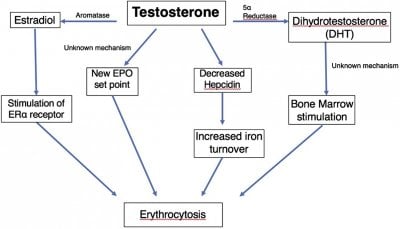Kaliman911
Member
Hello guys, I’ve been on TRT for about 4 months and I just recently got my blood lab results. Everything looks good, but I did noticed my hemoglobin and hematocrit did increase to 15 and 45 respectively. Are they going to keep increasing? My doctor wants to check me at 6 month intervals now and not sure if my A1C will change too much on those 6 months. She also told me to take a baby aspirin. Doesn’t fish oil do the same? Thin the blood? I take plenty of that. I will appreciate any info and guidance. Thanks.
Last edited by a moderator:

















